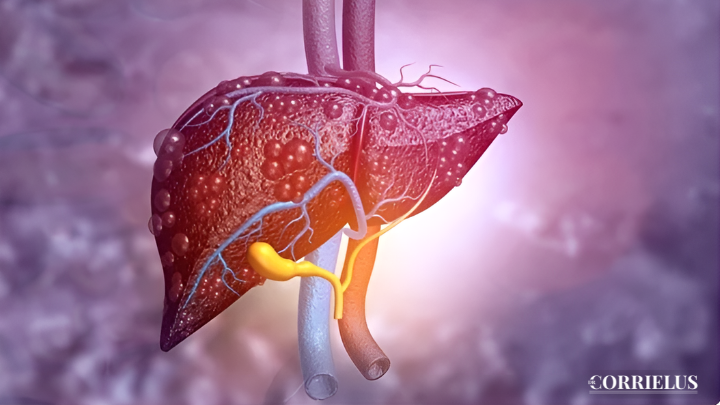Our skin can show us important clues about what’s happening inside our body. Sometimes, if we have a problem with our liver, our skin might change. This can also mean we might have heart problems. Let’s look at seven skin signs of fatty liver and why they might be linked to heart issues.
- Yellowish Skin (Jaundice)
One sign your liver is struggling is when your skin turns yellow. This condition is called jaundice. When the liver is not working well, it can’t clear out a yellow substance called bilirubin from the blood. This can make your skin and eyes look yellow. If you see this, it might mean there’s a problem with your liver, and it could also affect your heart health.
- Itchy Skin
Another sign is itchy skin. When you have fatty liver, your liver might not be working properly. This can make your skin feel itchy or uncomfortable. This itchiness is often caused by bile, a fluid that helps digest food, building up in your blood because your liver can’t remove it well. It can sometimes be a sign of heart problems because of how the liver and heart work together.
- Dark Patches on the Skin (Acanthosis Nigricans)
Dark patches on your skin, especially around your neck or underarms, can be another sign of fatty liver. This condition is called acanthosis nigricans. These dark patches might appear because your liver is struggling to process insulin, a hormone that helps control blood sugar. High levels of insulin can be linked to heart issues.
- Swelling or Edema
Swelling in your legs or ankles is another sign that your liver might be having trouble. This is called edema. When the liver is not healthy, it can cause fluid to build up in your body, making your legs or feet swollen. This can sometimes be connected to heart problems because the heart and liver work closely to keep fluid levels balanced.
- Red Palms
Red palms can be a sign of fatty liver. When your liver is not working well, it can affect your blood flow and cause your palms to turn red. This can be linked to heart issues because your liver helps manage blood flow and health.
- Rashes or Bruises
People with fatty liver might notice unusual rashes or bruises on their skin. This happens because the liver helps in making proteins that are important for blood clotting. If the liver is not working properly, it can lead to easy bruising and rashes. These problems can sometimes mean that there are issues with heart health as well.
- White Spots or Nails
Lastly, if you see white spots or changes in your nails, it could be a sign of fatty liver. The liver is important for many things, including making sure our body has the right nutrients. When it’s not working well, it can show up as white spots on your skin or nails. This can be a sign that your liver is struggling and might be linked to heart problems.
How to Diagnose Fatty Liver
If you notice any of these signs, it’s important to see a doctor. They can help find out if you have fatty liver and check if it’s affecting your heart. They will use tests like blood tests and imaging scans to diagnose fatty liver and check for heart issues.
Is There a Cure for Fatty Liver?
In fact, there is a way of treating this disease, which is fatty liver. Diet and some exercise may be used as the treatment to control and prevent fatty liver and therefore control heart diseases. Their advice should be complied with to manage the mentioned condition as well as the risks that come with it such as those affecting the heart.
A word from the doctor —
It is essential to note that some skin color changes may be signs that your liver is having a tough time and even signs of heart issues. On noticing these signs and consulting with your doctor, you may be able to take measures in safeguarding your liver and prevent risks of the damage to the heart. As always, the relations between the liver and the heart are kind of mutual, where one’s health determines the other’s.
Schedule a consultation with Dr. Sanul Corrielus right away if you have questions about your heart health!



